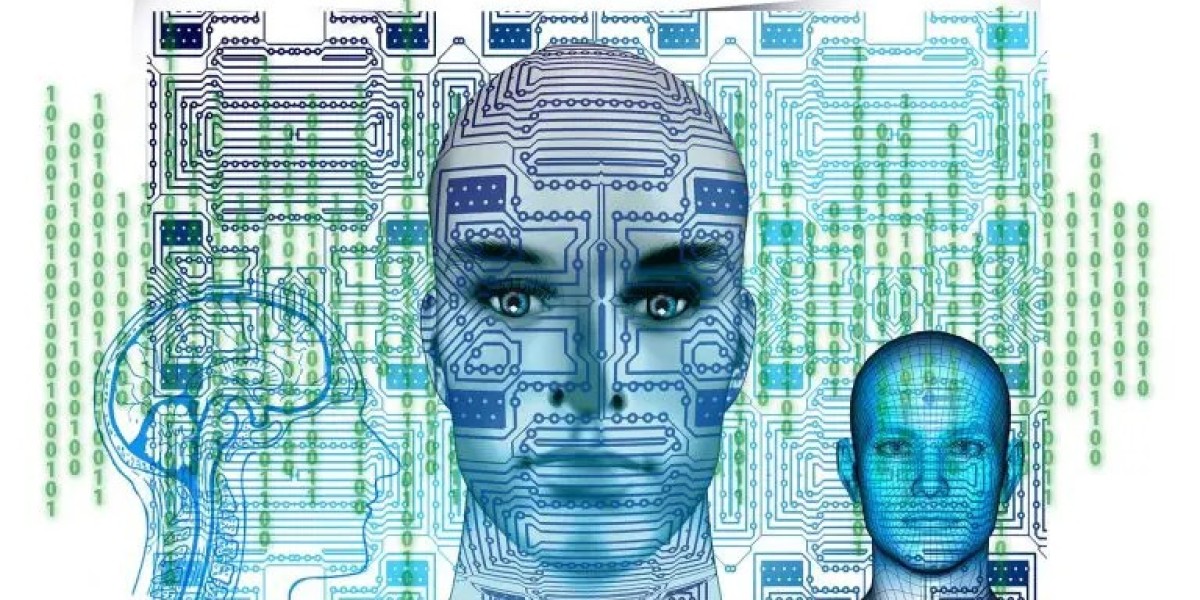AI app development is at the forefront of this revolution, leveraging cognitive technologies like artificial intelligence and machine learning to create intelligent apps. By integrating past and real-time data with AI and ML algorithms, these apps provide users with a highly personalized and intuitive experience. This innovative approach is reshaping the landscape of app development, offering limitless potential for enhancing user engagement and satisfaction.
These apps continuously learn from every end-user interaction to improve performance and deliver a uniquely customized UX. They use the devices’ features to make smart suggestions, deliver relevant information and do predictive analysis.
AI software development is poised to revolutionize the landscape of intelligent applications, becoming a cornerstone in reshaping business processes. As businesses increasingly integrate AI into their software systems and services, the market for intelligent apps is projected to experience significant growth, with a forecasted 35% CAGR from 2021 to 2027, indicating substantial opportunities for innovation and disruption in various industries.
Key Features of Intelligent Apps
Uses data analytics
Intelligent apps process huge amounts of data across multiple sources to provide accurate predictions and valuable insights. By leveraging generative AI technology, these apps can go beyond spotting trends and predicting outcomes to actively creating novel solutions and scenarios based on the data they analyze. This advanced technology empowers intelligent apps to offer more creative and adaptive insights, revolutionizing their ability to support decision-making processes across various domains.
Integrates Natural Language Processing
NLP is an emerging field in AI technology, which is used for interaction between data science and human language. It gives the machines the ability to read, understand and derive cognitive meaning from human languages. Intelligent apps use NLP technology to process and analyze huge chunks of unstructured data.
Adaptive in nature
Using machine learning technology, intelligent apps continuously adapt and evolve according to the data gathered. They adjust to users’ needs according to their past usage, which significantly improves user experience.
Eliminates the use of keyboard
ZeroTouch is a virtual interface technology that uses a high-performance multi-point sensor to detect visuals within a plane. With a zero-touch interface, intelligent apps eliminate the need to use a keyboard to enter commands. They integrate voice or image-based innovations to provide a seamless experience.
Integrates with Virtual Assistants
Intelligent virtual assistants is a development of the AI system that can detect natural language voice commands and complete specific tasks for the user. Intelligent apps easily integrate with your device’s in-built virtual assistant to retrieve information faster. By using speech recognition technology, it provides an interactive user experience.
Proactive learning
Since intelligent apps continuously learn and adapt according to user behavior, they do not wait for end commands to deliver results. They are proactive in their approach and hence can deliver actionable solutions using predictive analysis.
Benefits of Intelligent Apps
Personalized user experience
With continuous machine learning, intelligent apps tailor their environment according to user behavior, interactions, and preferences. AI-based algorithms help intelligent apps extract knowledge from user data to suggest recommendations and insights. This makes for a much more engaging and intuitive app experience.
Augmented reality
Artificial Intelligence (AI) and Augmented Reality (AR) are two distinct technologies, but they can easily sync with one another to build an incredible user experience. With rapid innovations in both fields, the line between the two is increasingly being blurred. Together, they form a powerful partnership that can change the way we use an app.
Increases automation
AI technology and machine learning make it possible for intelligent apps to reduce manual tasks. Since these apps are proactive in nature, they can complete a number of tasks in the background without any command. They also help improve workflow, expedite business processes and increase overall productivity.
Retains customers
End users are always looking for a richer and more engaging user experience. Each user is unique and interacts differently with every app. By understanding user behavior and adapting future actions based on user preference, intelligent apps help companies to engage and retain customers successfully. Predictive analysis also helps businesses create more tailored marketing campaigns, with a better success rate.
Forecasting trends
Intelligent apps analyze customer behavior patterns that can be used to understand future market trends. With the help of intelligent apps, businesses can learn what content receives the most engagements and then adapt their services accordingly. Intelligent apps are also capable of building a prediction model, ranging from predicting the next usage to predicting a mobile malware attack.
Increases business profitability
By using predictive intelligence, intelligent apps provide crucial user data to businesses that helps them optimize their marketing efforts. Using behavioral marketing, companies can easily customize their campaigns according to each user. This in turn boosts sales and increases overall profitability.
Significant Use Cases across different industries
The data gathered and analyzed by intelligent apps can be used for quite a detailed user profiling. This is not only important to study behavioral patterns, but can also help in predicting trends in different sectors, including healthcare, fintech, education, etc.
Healthcare
A report by JASON, an independent US government advisory panel concludes that AI-powered apps are making revolutionary changes in the healthcare sector. The health data so captured by these apps can be used by doctors and researchers.
Globally, a large number of users have already started using AI-powered devices to monitor individual health. More recently, the COVID pandemic has played a huge part in putting AI-based healthcare apps at the forefront. From scheduling appointments to setting medication reminders, intelligent apps are paving the way for the adoption of smarter healthcare practices.
Fintech
As more and more financial transactions are being done through apps, Fintech companies are using intelligent apps in a number of innovative ways. Automated customer support through chatbots, asset management through forecast and simulation, automated virtual financial assistants are some applications of intelligent apps in this sector.
But that’s not all. Intelligent apps can learn and monitor user behavior to detect rarity and raise red flags against fraud attempts. They can identify fraudulent claims in the system, impart wealth management advisory services through smart wallets, and even be used to determine risk levels in insurance management.
Education
Intelligent apps can help educators understand the grasping powers of their students. Since the learning and thinking capabilities of each student is different, intelligent apps can offer personalized learning services for every student, using ML algorithms.
Using digital voice assistant tools, these apps integrate adaptive learning features. For example, Alexa can get you the required study material without having to browse through a laptop. By automating non-teaching activities, these apps also allow educators to focus entirely on the job at hand.
Hospitality
Intelligent apps can collate multiple sources of data points to give a more nuanced insight into the occupancy patterns of your area. It can also help you optimize and dynamically adjust your pricing from day to day.
An example of this is Airbnb, an app that is already using this feature with great success. Businesses can also adjust their marketing campaigns, offer personalized rewards programs, and give smart-controls to their customers.
Restaurant Industry
From forecasting sales to customizing marketing campaigns, there are many ways intelligent apps are being used to reshape the restaurant industry. The most common usage of intelligent apps in this sector is chatbots and virtual assistants to respond to customer issues.
Intelligent apps also help in optimizing delivery mapping, giving meal recommendations to consumers based on their eating preferences, integrating voice ordering, and forecast restaurant inventory and pricing.


